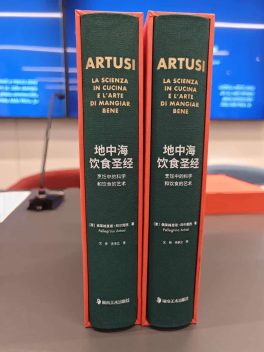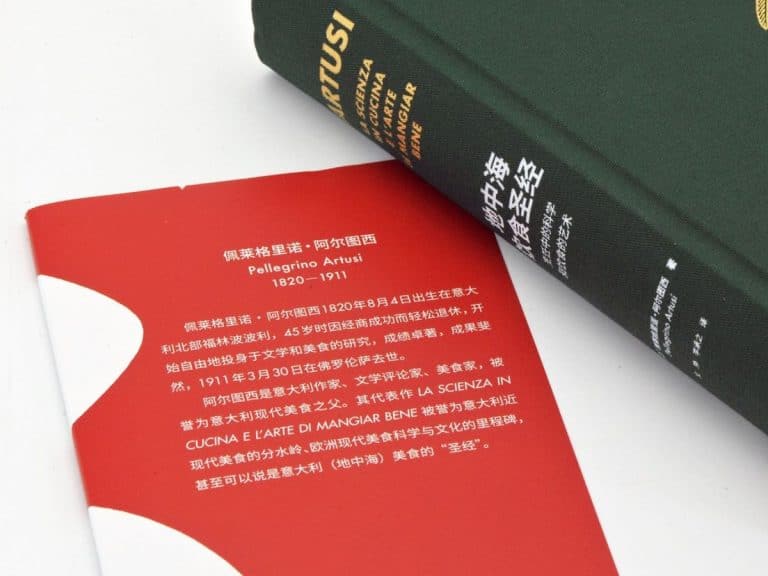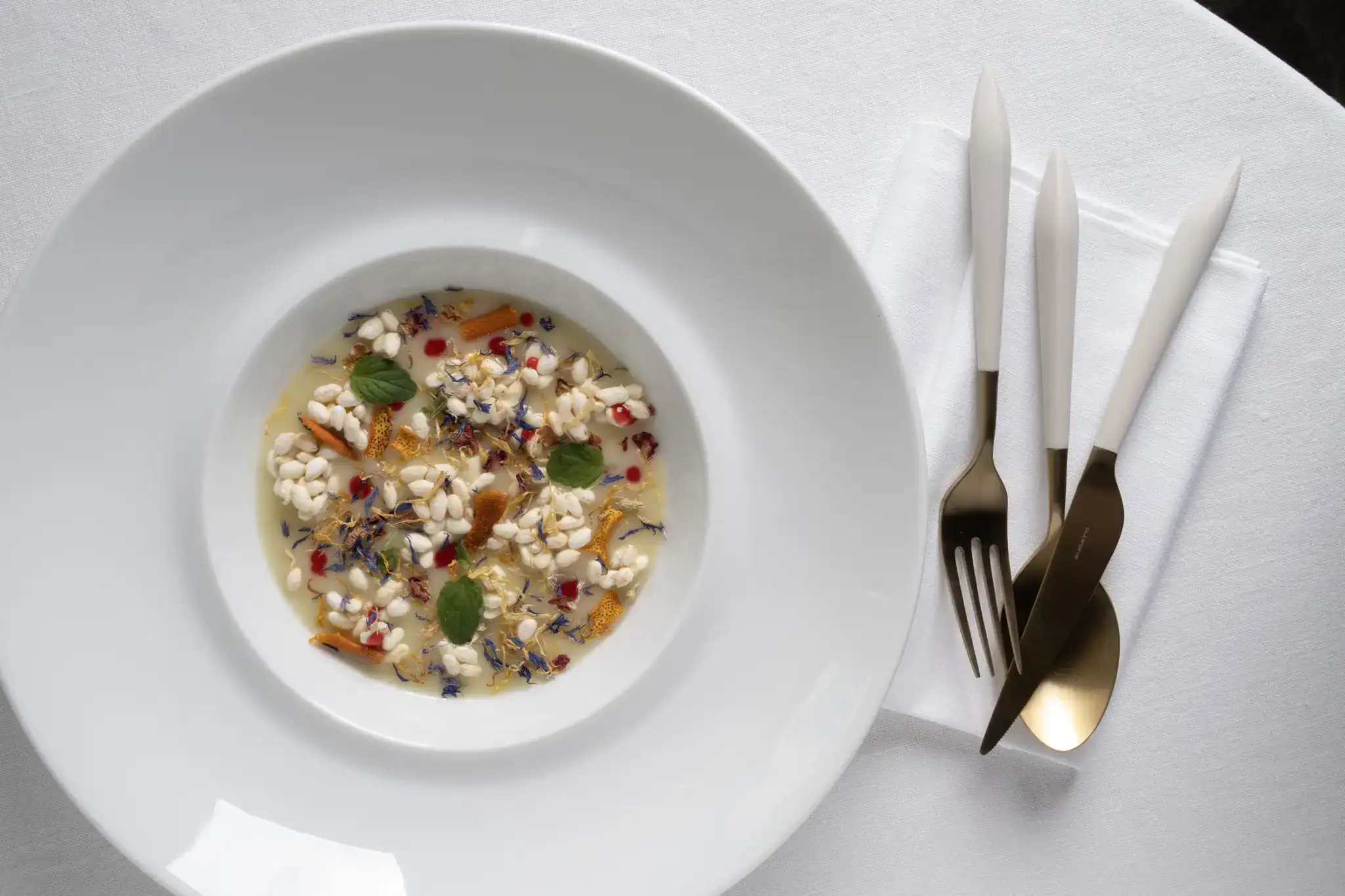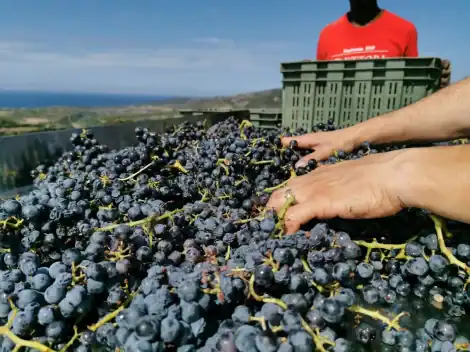By Laura Giorgi
In how many languages can "The Science of Cooking and the Art of Eating Well" be read? At least in eleven, including Chinese from 2024. Pellegrino Artusi's enduring bestseller, which has spanned eras since 1891, now crosses continents as well.
After spreading recipes, anecdotes, and aphorisms of the learned merchant from Forlimpopoli throughout old Europe, a few years ago, the first frontier conquered in the East was Japan. Now, in the Year of the Dragon, the 790 authentic Italian recipes also reach the land of yin and yang cuisine.
The translation project
The Chinese version of the famous manual, which has united Italians at the table and in language, follows translations into Catalan, French, English, Dutch, Polish, Portuguese, Russian, Spanish, German, and Japanese. The translation project began in 2021, but as emphasized by Laila Tentoni, the president of the Casa Artusi Foundation, "it was already in the works since 2014, the year of Casa Artusi's mission in China."
The volume, in an elegant red binding with a green cover, colors that, combined with the white pages, naturally form the tricolor, was produced by the Chinese publisher Hunan Fine Arts Publishing House, from southern China, in collaboration with Casa Artusi and with the support of the Emilia-Romagna Region, the Municipality of Forlimpopoli, the Italian Embassy in Beijing, the Italian Cultural Institute in Beijing, and Aife/Filiera Italiana Foraggi.
"In the end, as always, time has been fair. When 'The Science of Cooking' was written, no publisher agreed to publish it, and Artusi, who will not fail to remind us for the rest of his life, published it himself. Over time, the cookbook has infiltrated Italian families, in all of them, never to leave - says Laila Tentoni of Casa Artusi. It becomes the gastronomic novel of Italian cuisine and is copied, pirated, translated in the centuries to come." The elements that determined its success are numerous.
"Artusi has been able to represent Italian gastronomic culture like no one else ever has - Tentoni continues - which is why he traveled following two currents. In the luggage of Italian migrants who wanted to bring a piece of their country with them, then it was deemed essential by all those who love Italian culture."
Recipes, ingredients, typical Italian expressions, a good dose of ironic jokes, it was not an easy task to render them in the language of a country so far away and with a much older codified cuisine. The translator was identified by the Italian Cultural Institute in Beijing in the person of Zheng Wen (Federico Wen), director of the Italian language department at the University of Foreign Languages in Beijing, academic of the Crusca, already a translator of Dante, Boccaccio, Calvino, Eco, and now Artusi, a new entry into the illustrious company of Italian literati. The first edition was printed in 3000 copies (costing the equivalent of about forty euros) and is only available in China, purchasable for Westerners on the Chinese publisher's website. Artusi has always functioned as a cultural and promotional element for Emilia-Romagna and will continue to do so in this version, accompanying the missions of the Emilia-Romagna Region and companies in various missions in the People's Republic of China.

"Artusi is not just a cookbook; it is a collective work that the author wrote and experimented with his readers throughout the country. The recipes are accompanied by stories, curiosities, and anecdotes that make it a timeless bestseller appreciated worldwide - say the regional assessors for Culture Mauro Felicori and for Agriculture Alessio Mammi.
It is undoubtedly the most famous and read book on Italian cuisine, a source of inspiration for generations of great chefs, and not only. It is an integral part of Italian history and culture, and that is why it continues to be increasingly appreciated abroad. After all, food is not just nourishment for the body; it is culture. Through food, the identity of our territories and communities is told."
Casa Artusi continues its work to promote all of Italian cuisine as a UNESCO intangible cultural heritage, in the name of Pellegrino. And now that Artusi can potentially speak to a population of one and a half billion people, the endeavor could be even more within reach.


 Little Italy in New York is Italian in name only. The disastrous effects of mass tourism
Little Italy in New York is Italian in name only. The disastrous effects of mass tourism "Trump is bullying Europe. With US tariffs at 30%, the consequences will be similar to the methanol crisis." Marco Caprai’s warning
"Trump is bullying Europe. With US tariffs at 30%, the consequences will be similar to the methanol crisis." Marco Caprai’s warning "Trump's tariffs? It's no longer time to be diplomatic. Europe must respond firmly." Matteo Lunelli speaks
"Trump's tariffs? It's no longer time to be diplomatic. Europe must respond firmly." Matteo Lunelli speaks The Michelin star king of Liguria opens a new restaurant: here is Luv by Mauro Ricciardi
The Michelin star king of Liguria opens a new restaurant: here is Luv by Mauro Ricciardi






